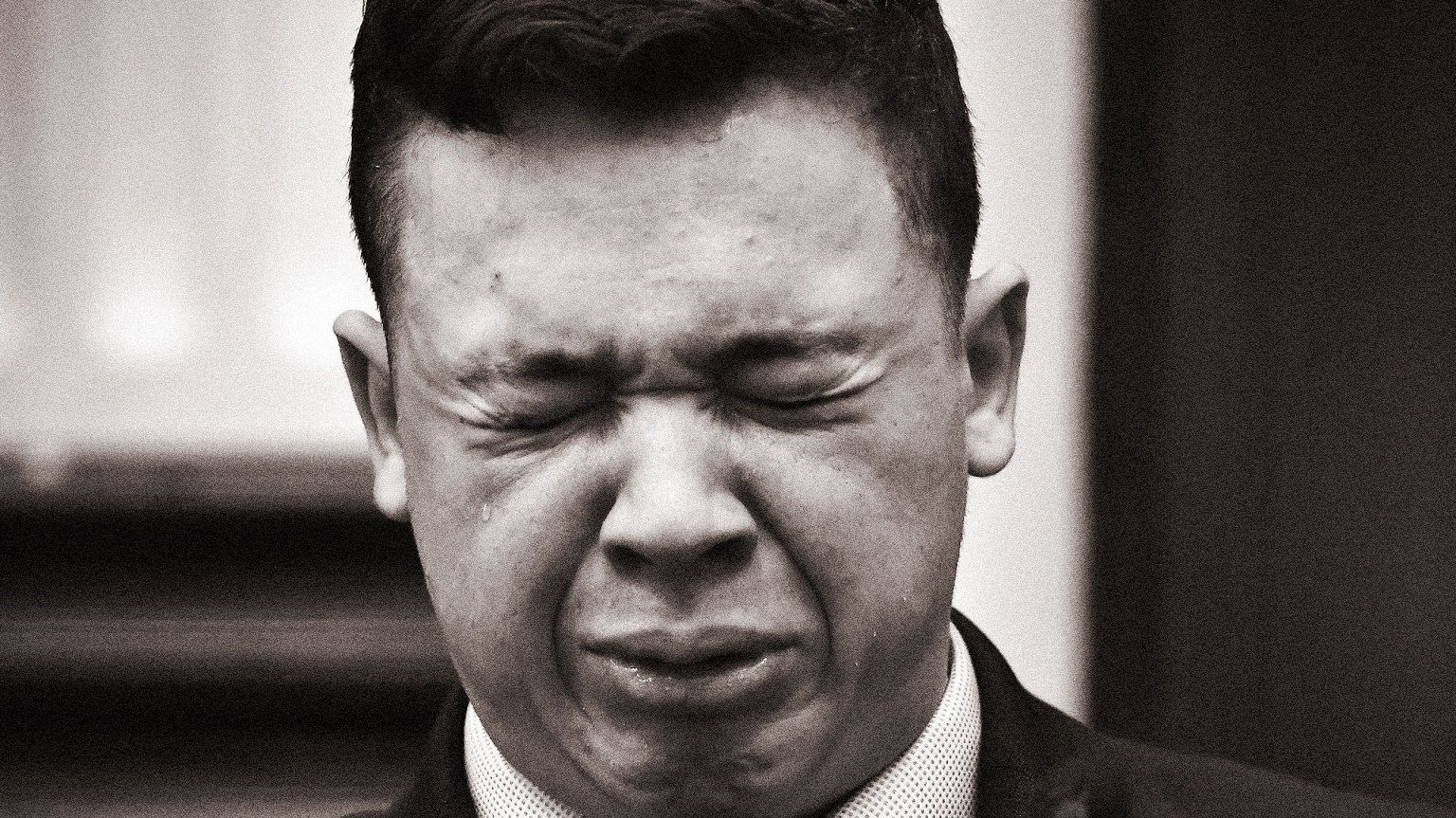
On November 10, three days into his trial, Kyle Rittenhouse took the witness stand in his own defense on murder charges stemming from his killing two men and wounding another with an assault weapon during the civil unrest in Kenosha, Wisconsin, in the wake of the 2020 police shooting of Jacob Blake. During his testimony, Rittenhouse was overcome with emotion. Wracked with sobs, he was unable to continue speaking. Whether you believe they were crocodile tears or a legitimate expression of remorse and horror, Rittenhouse’s breakdown marked a turning point in his controversial trial, and probably ensured that the jury would eventually acquit him on all counts—as it did on Friday.
But the tears also highlighted a significant problem with the entire Rittenhouse case, which is that he should never have been on the witness stand, in front of TV cameras, or in an adult court, in the first place. During closing arguments, Rittenhouse’s lawyer underscored that fact when he told the jury, “My client was 17-years-old. His actions should be judged as a 17-year-old.”
It’s not popular to point out that Rittenhouse was a child at the time of the Kenosha shootings, especially in light of the jury’s resounding “not guilty” verdict. But when Rittenhouse took an AR-15 to join armed adult militia members claiming to be protecting property from protesters, he wasn’t old enough to vote. He couldn’t buy booze, join the military, or in some states, even have a full-privilege drivers’ license. He was by every other legal and social measure still a kid, and one whose case should have been handled in the juvenile justice system. There, his catastrophic and deadly fuckup would have been handled away from the cameras and the politicians looking to use him for their own self-promotion, and where the focus would have been not so much on guilt or innocence or self-defense, but on how he got to this terrible place and what should be done to hold him accountable—while still offering a shot at rehabilitation.
However, Wisconsin is one of only three states—along with Georgia and Texas—where the law requires the justice system to treat all 17-year-olds as adults. That’s why Rittenhouse never even had the option of going to juvenile court.











